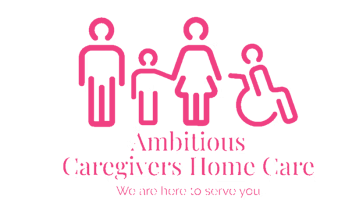Introduction
When someone you love needs extra help at home, deciding what type of care is best can be overwhelming. Two of the most common options people look into are Home Health Care and Personal Care Services. While they might sound similar, these services have important differences in terms of what they offer, who provides them, and how they’re paid for.
In this article, we will explore the main distinctions between Home Health Care and Personal Care Services so you can make the most informed decision for your family.
What Is Home Health Care?
Home Health Care is a type of medical care provided at home by licensed healthcare professionals. It’s typically prescribed by a doctor and is intended for people recovering from illness, surgery, or managing chronic conditions.
Services Included in Home Health Care:
- Wound care and dressing changes
- Physical, occupational, or speech therapy
- Medication administration and injections
- Monitoring vital signs and health status
- Post-surgery recovery support
Who Provides Home nursing?
Home nursing is administered by trained professionals such as:
- Registered Nurses (RNs)
- Licensed Practical Nurses (LPNs)
- Certified Therapists (physical, occupational, etc.)
These caregivers follow a medical plan prescribed by a doctor and often report progress back to the physician.
What Are Personal Care Services?
On the other hand, Personal Care Services are non-medical services aimed at helping individuals with daily tasks they can’t do independently. These services help people maintain independence and dignity while living at home.
Services Typically Included:
- Bathing, grooming, and dressing assistance
- Meal prep and feeding support
- Mobility help
- Toileting and incontinence care
- Companionship and emotional support
Who Provides Individual upkeep?
Care is provided by:
- Home Health Aides (HHAs)
- Personal Care Assistants (PCAs)
- Caregivers without medical certification, but often with training in safety and elder care
They are not licensed to provide medical treatments but are trained to assist with daily living activities safely.
Key Differences Between Home nursing and Personal Care Services
1. Medical vs. Non-Medical Care
The most obvious difference is that Home nursing is clinical and requires a prescription. Personal Care Services, meanwhile, are supportive in nature and focus on comfort and independence.
2. Staff Qualifications
Home Health Care professionals hold licenses and certifications. Personal Care providers may have basic care training but don’t administer medical treatments.
3. Payment Options
Home Health Care is often covered by Medicare, Medicaid, or private insurance because it is considered medical care. Individual upkeep usually must be paid out-of-pocket, though some states provide Medicaid waivers or local assistance programs.
4. Purpose of Care
- Home Health Care is about recovery, monitoring, and preventing hospital visits.
- Individual upkeep are about helping someone live well and independently at home.
When Do You Need Home Health Care?
You might consider Home Health Care if:
- You are recovering from surgery or hospitalization
- You require injections, wound care, or therapy at home
- You have a chronic illness that requires frequent medical supervision
- A doctor has referred you for skilled nursing care
This kind of care is usually short-term until the patient improves or becomes stable.
When Are Personal Care Services More Appropriate?
Personal Care Services are ideal if:
- An elderly family member needs help with bathing, dressing, or meals
- Someone has mobility issues but not medical problems
- Your loved one needs companionship or light housekeeping help
- You’re a full-time caregiver who needs a break (respite care)
These services can be short-term or ongoing, depending on the individual’s condition.
Can You Combine Both Types of Care?
Yes! In many cases, a person may need both types of care. For example, someone recovering from surgery may get Recovery assistance for wound treatment and Individual upkeepfor help with bathing or getting out of bed.
Combining the two ensures a holistic approach to in-home care covering both medical needs and day-to-day support.
Conclusion
Understanding the differences between Home Health Care and Personal Care Services can save you time, money, and unnecessary stress. While Recovery assistance provides medical treatment and monitoring at home, Individual upkeep focus on helping individuals with daily activities so they can live more independently.
For families navigating long-term care options, knowing when and how to use these services can make all the difference in quality of life. Whether you’re caring for an aging parent, a loved one recovering from surgery, or simply planning for the future t’s important to understand the roles these services play.
In fact, combining both Daily hygiene and Personal Care Services creates a stronger support system especially for those with complex needs. It’s about finding the right balance, one that brings peace of mind to everyone involved.
So take a moment, assess the needs of your loved one, and don’t be afraid to ask questions. The right care is out there and sometimes, it starts right at home.
FAQs About Home Health Care vs. Personal Care Services
1. Can Medicare cover both services at the same time?
Yes, if the patient qualifies. Medicare will typically cover Recovery assistance, and in some states, Medicaid waivers may help with Personal Care Services.
2. Do I need a doctor’s prescription for personal care services?
No, you can hire Personal Care Services without a physician’s order. But for Home Health Care, a doctor’s referral is required.
3. Are caregivers for both services trained the same way?
No. Home Health Care workers have medical training and licensing, while Personal Care providers receive basic training in daily assistance and safety protocols.
4. Which service is better for someone with dementia?
It depends. In early stages, Daily hygiene may be enough. But as the condition progresses, Home Health Care may be needed for monitoring and medical interventions.







